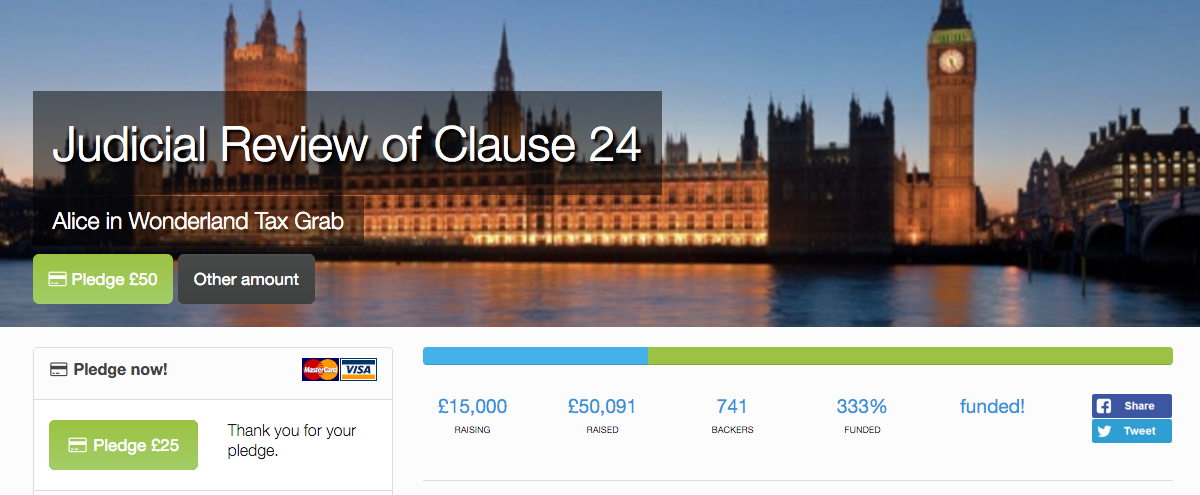Steve Bolton and Chris Cooper raised over £50,000 on CrowdJustice earlier this year. As they prepare to embark on an even bigger raise to fund the next stage of the Judicial Review process, we asked Steve (pictured above) what made their campaign so successful last time around.
How did you prepare for your CrowdJustice campaign?
We were very fortunate as there were some online forums, such as property118 and property tribes, which already had active threads and discussions about the issue. They were being viewed by a lot of people. If that exists in relation to your issue already, great. If not, it might be a good idea to try and create the groundswell and momentum that can come from engaging with people online.
We found that most of our funding came from people who already knew and trusted us, and from those online forums.
If you don’t already have someone who is an influencer in the field among your campaign supporters, it is worth seeking someone out. They can bring their networks and credibility to the campaign. If you can persuade them to align themselves with your campaign at an early stage, it will help build momentum and bring others to you.
You reached your target very quickly, why do you think that is?
Firstly, we were campaigning on a big issue that affects a lot of people. There is quite a lot of anger around about it, and the impact of the tax is likely to substantially affect a lot of people.

Steve’s CrowdJustice case page.
The change to the buy-to-let landlord tax is a complex issue, however, and we found that many people had not realised it was going to affect them. We took time to clearly explain it. We had to craft the message to simplify it, which we did on our CrowdJustice case page. By doing this, we managed to make a complex issue very straightforward and enable people to see how it will affect them. We also managed to create a sense of urgency, so people were ready to act quickly.
What is your top tip for people thinking of crowdfunding a legal case?
I would say the most important thing is the distribution list that you have. The longer it is when you start, the better. But once the campaign is live, you can focus on building the list, and making it as broad as possible. You want to engage with as many of the people who are affected as possible.
We started by thinking through everyone we could communicate with, and how. We used emails, discussion boards, events and PR, always trying to reach out to anyone who might be interested.
Crafting the message carefully involved thinking through the issue from the perspective of the people you are trying to communicate with. They may want to know “what’s in it for me?” - how will it affect them, and how can you communicate this clearly.
Was there anything surprised you about crowdfunding?
We were surprised how quickly we raised the money.
I think a key part of that was communicating promptly and regularly with people. We didn’t just put our page up and sit back. It’s important to push the page - we pushed it out to the online groups, on our facebook page, twitter, linkedin. We shared it with our family and friends, everyone who donated. Ultimately, we managed to get it in front of various relevant politicians and into the mainstream press.
Any last advice?
One other thing we learned through this campaign is the importance of setting the right initial and stretch targets. It is important to set them effectively from the outset. We were lucky, and managed to get it right. We worked out from the lawyers how much they were going to cost. It was important for us to really understand how the CrowdJustice system works - the different set up in terms of the initial and stretch targets, and how and when the money is collected.
I would say that it is best to set targets that are as realistic as possible. You need to be pretty confident you can make a decent dent in the total in the really early stages. If it looks like you won’t it can be very off putting for donors, and de-motivating for the campaign team.
We managed to hit our initial £15,000 target in the first 24 hours, and this gave us huge momentum to push to the full £50,000 stretch.
Steve & Chris have now launched their new CrowdJustice case page, aiming to raise up to £250,000.